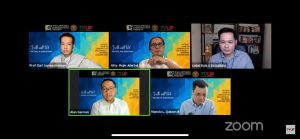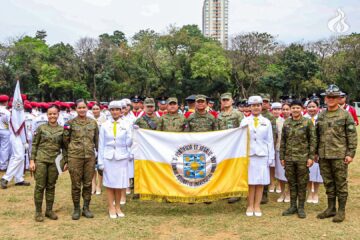
VOTERS SHOULD “punish” campaign teams that spread false information during the election period, a public relations expert said.
Alan German, president of the Agents International Public Relations, said political campaigns become “clumsy” and “amateurish” if they are run based on “disingenuity.”
“The best way to police the PR (public relations) industry [is to] punish them. Who can punish them? The voters. When you see candidates using disinformation as their primary weapon or tool, do not vote for them. This way the PR will learn as well,” German said during the ‘Truth Well Told: Political PR and Advertising’ forum last Nov. 10.
“We saw a lot of candidates in the past [who] were the best at something, but it was not important to the voters. It has to be believable because if you do not have a reason to believe, it will become inauthentic,” he added.
Advertising Standards Council legal counsel Rejie Jularbal said while voters are discerning in choosing candidates, they still require “additional guidance” to spot false information in political campaigns.
“We should reinforce in educating them, not only in terms of who the proper candidates are but also fact-checking on issues or positions that are put in [the] media,” Jularbal said.
Voters should discern their “non-negotiables” instead of voting for candidates based on their personality and message, German said.
“Start with your non-negotiables. Hindi ako boboto ng magnanakaw, sinungaling, dagdag pahirap sa ating bansa (I will not vote for corrupt politicians, liars, people who will add to the sufferings of our country),” German said.
Eliminating those who do not meet the criteria of certain non-negotiables, German added, could bring out the best and deserving candidate.
Spin doctors
Jularbal said the law indirectly allows for negative campaigning or campaigning to tarnish the image of a candidate’s opponents. However, negative campaigning is limited by the laws of libel and should still follow certain ethical standards, he added.
German explained that the duty of a political PR strategist is to applaud his candidate, attack his opponent, and avert bad news while maintaining the truth.
“In this age and time, information can be readily verified, so when I applaud, I uphold the truth. When I attack my opponent, [I do not] engage in fake news. I will dig up fact-based issues and I will shed light on it, but I will never be disingenuous,” he added.
German noted that political PR strategists are called “spin doctors” because they “spin” misleading news about their candidates by reframing information positively and reducing their negative influence on public opinion.
“We promote by profession, by vote, by conscience. Having said that, we also decline some clients based on a moral compass,” he said.
According to German, PR firms go through “intensive” background checking and “confession booths” before accepting clients.
“Kung karumaldumal, hindi ka na namin tatanggapin bilang kliyente. Kailangan din namin malaman kung ano ‘yung strengths and temperament mo (If it is too nefarious, we will no longer accept you as a client. We also need to know your strengths and temperament),” he said.
The forum was the fourth episode of National Forum on Communication and Democracy: Philippine Elections 2022 organized by the Philippine Communication Society in collaboration with TVUP, the University of the Philippines’ internet television network. F – J. Moises



